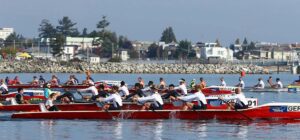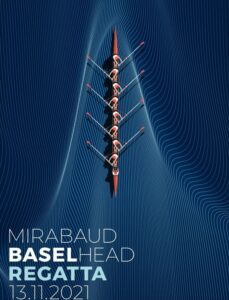From Beginner to GB medallist, Adrian Cassidy, World Class Start Performance Development Coach.
Adrian started one of the pilot World Class Start projects in Cambridge…. impressive coaching record.
A pathway to international rowing… WCS athletes 'do it' because we think they are going to be good. Compared to juniors who do it because they are having fun at school.
World Class Start
Begun in 2002 and with a clear focus on sculling. Sporting Giants programme of national search getting 300 athletes, 70 to intensive testing and joining the programme. Those not making the grade got sent to high performance clubs.
We identify exceptional athletes for British athlete and develop the best of them.
This is designed to win Olympic medals because they fund the sport.
- What is it like for an athlete to be on WCS?
- Go to schools and identify the athletes;
- Bring them to centres across UK and teach them to train properly.
- Use camps 9x per year as a testing forum to measure development and show improvement.
- Selected for national team
Talent identification.
Centres located in areas with good school population within 5 miles of a club with good rowing water. Meet Head Teacher and sports staff. Looking for 15-16 year old boys and girls. We visit and test at the school The PE teachers bring the right children together. Tall kids and keen ones who want to test. Talk about fitness testing in the school to explain the programme. In Cambridge tested 8-900 children and picked 5.
Each child gets a letter explaining the test results and they can take this to the local club if they still want to row. The selected children get a family meeting to explain the programme.
Tests came from Australia…. started with 125 tests and reduced to 3. Size, Strength, Endurance. Rowing is a simple sport to test compared to testing / diving etc.
- C2 dyno, leg press, bench pull bench press. Length and strength
- Leg and arm bike for endurance (the most powerful test). It shows the tough kids.
- Anthropometric – height, armspan. Cut off 188cm boys and 178 girls. At 16 years… Weight and armspan. Want people with greater armspan than height. 198 tall and 212 armspan!
Meet the family of the child. When you arrive you can see the lifestyle, living arrangements (Divorced parents). This gives insight into how we deal with the children later. Tell the children the scores are down to their parents – genetics, food and upbringing. They explain the full story of what an international athlete is like – cold, wet, no social life….. invariably the children really want to do it! Only 4 have turned WCS down at this point.
We leave the family to think about it and if they decide to accept, they start a 6 month probation. If they don’t develop, and cope with the training and can’t perform under pressure they will not succeed.
WCS Camps
Adrian describes the programme as ‘cut throat’ because of the focus on Olympic medals. It’s a great environment particularly for girls who
They have to organise better to work and train – many get better GCSE grades because of their organisational skills.
Camps are just about testing…. if you are not improving it’s immediately obvious. All the kids are trying to beat each other. The performance culture is there – the stopwatch counts. It is too daunting for some…. we have to be human to deal with that. Many of these join clubs and join the national rowing scene.
We publicly reward success – PB or particular skills. How they stand when recognised shows pride.
Visits from experts in hydration, nutrition, lifestyle skills. Need also to communicate this to parents too.
Development Pathway
Promote athletes based on performance only
- Skills
- Boat speed
- Power per stroke
- Competitive times pieces in 1x
Boat speeds
- Testing in 1x based on senior gold medal times …. % changes with their age…always the same target
Land testing
- Don’t promote based on land test results, only water
- Flexibility
- Strength training (weights)
- Cross training (bike, run, swim, cross trainer) – to keep volume training up while skills develop
- Ergometer (Concept2)
From week one they do 6 sessions a week…..Important to commit time and organise their life straight away.
Generally you have to be strong enough to pull a decent ergo to become an Olympic Champion… a few exceptions can’t do good erg scores.
Skills
- Circles – straight into fine single
- Timed repetitions – get promoted into groups of people who have similar scores
- Balance – at catch with blades off water (record is 10 minutes!)
- 360 degree turn – a clear correlation in speed turning boat and 1k rate 24 pieces…. it builds confidence early (record is 24 seconds) and use a lot of power to make it work
Group D is the bottom at camp…. 6 months should be able to get into Group C. Get tested twice before promotion
Group D 2k at rate 24 one with the conditions and one against…. need 71% of GMT (Gold medal target)
Group C 2 x 1500 at rate 26 and need 77% GMT. Done as side by side and a time trial.
Group B 2x 1500 at 28 getting 83% GMT.
Group A 2 x 1500 at rate 30 achieving 89%.
At a windy camp it’s harder to make the times….but the world champs can be windy.
Juniors to make GB selection need to achieve 80-82% and medallists get 82-84% (for the crew boats… need 86% to win a medal as junior single sculler)
U23 final trials need 84%, 86% plus to get selected and medallists get 88%+ to medal.
It clearly takes several years to make this transition from Junior to U23.
Seniors 85% to get invited to trials, 88%+ to get selected
Coaches' Role
“I am motivated to coach motivated athletes….
- Enthuse the athletes
- Empower the athlete to make choices – good and bad. Learn from mistakes.
Build athlete’s self confidence through use of training programme (beat a target) Elite athletes are demanding, awkward, belligerent, think they know more than you… Then job is to wean them off dependence on the coach.
Because of this difference they don’t fit into the mainstream club programme… they are special.
Summary
As coaches how do we take exceptional athletes we find good enough to make the national team?
- Identify talented athletes….you have to do something different for them IF they want to go to the top
- Create a performance culture for them (hard for us to integrate into a club programme) relentless pursuit of goal while still making it fun
- Develop the performance brain – let the talent come out – re-educate them to think like winners (note not rudeness)
- Develop performance
- Build training programme towards the GB Programme and prepare them for that training
There are reasons but no excuses!
Questions
How to enthuse parents and children. If there are issues with schoolwork this has to be sorted in order to stay on the programme. Because some U23s have to do a regatta the day before their finals… these pressures have to be coped with.
What about costs? Funding goes into coaches employement but we have subsidised camps and the rowing club membership is also paid by the children's parents. If they really struggle financially we try to help out. Children don't get paid or any direct grant funding until they perform.
We brief parents carefully about money. The clubs provide the boats initially but if they are to be successful, most will want to buy a boat.
Connection between Clubs and WCS? some clubs are big and can cope well and involve them closely. Other clubs have fewer members. They ALWAYS race as their clubs and represent them. We are clear in our set up agreement with the club about what the mutual responsibilities are.
Can they join younger? We have picked exceptional kids younger. One of the issues of 15 / 16 is that once they've learnt to row they only have one year as a junior. It is a balancing act.
What support is given to the drop outs to continue in rowing? Quite a lot. WE are very objective in data so kids see performance. When they stop it is difficult because their friends are continuing. We make sure this is a mature decision not a failure. It is important. Nobody has been kicked off the scheme… it has always been by mutual agreement.
The % achievements how are they set? Gold times are set by Jurgen and Tommo. Worked out the % by working back from athletes who win medals back to the camp results they produced in earlier years. There is a clear correlation and speeds they have to achieve in order to medal.
Are the results published? Selection we have rough cut offs but we choose kids with different scores, particularly on Dyno. Less so on the bike. Bike test 1 min at 60 rpm, 1 min at 70 until they blow up. Record is 97. A boy should be able to do 90. Girls scores are harder to pick but the sporting giants kids produce awesome scores.
Links to talent ids in other sports? Not much. We did a bit with Canoeing… but they picked people with smaller heights than us! Our tests are easy compared to diving, football and tennis who find it harder to select future talent in this way.







